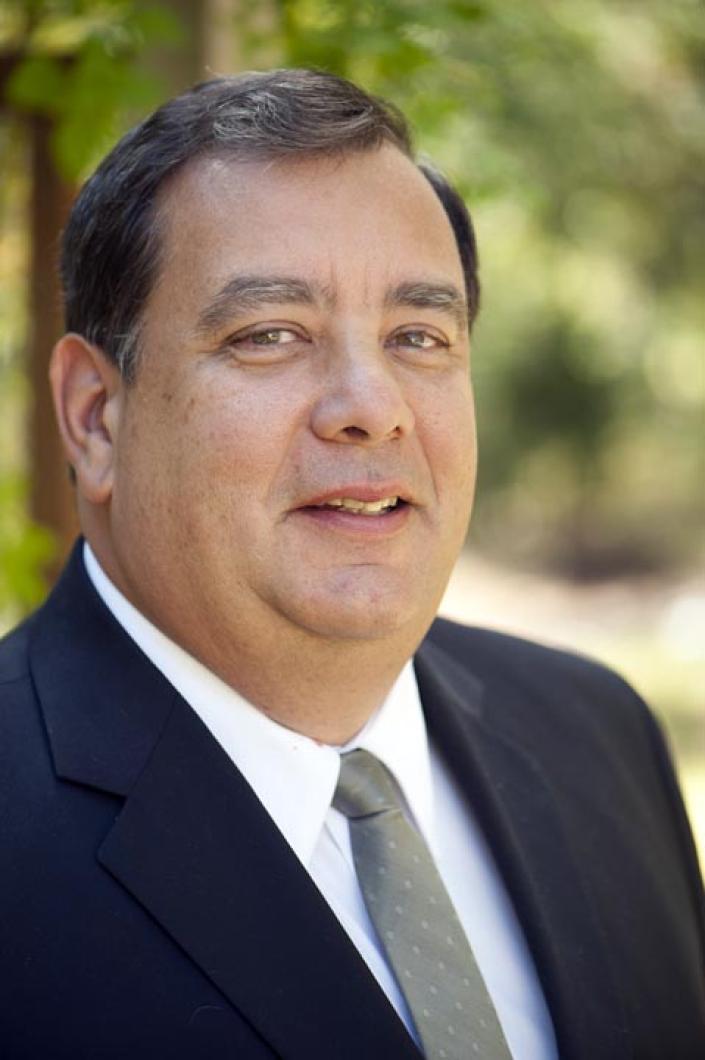Neal Maciel’s policy manifesto relates almost exclusively to the running of the jail. It begins with a promise to prohibit transfers of prisoners from off-Island, something he claims the current sheriff allows too often and as a favor to his counterparts in other counties.
It’s a practice, he says, which has contributed to the Vineyard jail’s reputation as a place where fortunate prisoners can do soft time.
“It brings a notoriety to the Vineyard that we don’t need,” he said. “And the reason we have it is because of the high-profile prisoners who are brought over here.
“I don’t think there’s anything about going to jail that’s soft, but it’s definitely a lot different going to jail here than in Barnstable or Plymouth, just on the basis of sheer numbers and the kind of criminals you have alongside of you,” Mr. Maciel said.
One result was that imported prisoners sometimes continued to live on Martha’s Vineyard after their release, he claimed.
“There’s lots of examples of people brought here as transfer prisoners who have made contact with other inmates and associates and girlfriends in the jail, and then decided to stay here, and then get involved in criminal activity when they get out,” he said.
He declined to cite specific examples.
“The current sheriff — this is second-hand information — certainly has the authority to decide who stays in his jail. And he seems to accept prisoners for — so I’m told — favors for other sheriffs within the county jail network,” Mr. Maciel said.
“I think a sheriff would be within his right to do everything within the authority of his office to prevent such transfers.”
But such transfers are not always organized between sheriffs. Sometimes judges order that sentences be served at a particular facility, said Mr. Maciel, and he was researching the law on that now to see if anything could be done to stop the practice.
“It’s something I want to look into and challenge, a judge’s right to sentence someone outside the jurisdiction where the crimes occur.
“I certainly can tell you I would not accept prisoners who were convicted for crimes including organized crime, gang-related drug dealers, pedophiles, sex offenders. I might be forced to accept some, but I would make sure the other sheriffs knew that was a policy of this department,” he said.
The Dukes County jail should be for people who received a sentence of up to two and a half years (the maximum sentence duration the jail caters to) for offenses committed within this jurisdiction, Mr. Maciel said. And that meant women as well as men.
“To me it’s a complete injustice for there not to be at least a limited capacity for female cells here,” he said.
“The most obvious recent example of that injustice would be that of Kelly McCarron, who is a young lady who was sentenced for a year, and is off-Island. So her family and friends have to take a boat and drive over to Barnstable jail to visit her.
“A young man who committed exactly the same crime would be sentenced here, and friends and family would only have a short drive.
“To me it’s an unequal punishment,” he said.
“I don’t see how, in the year 2010, we don’t have the capacity — even if it’s a limited capacity to house — women. Even if it’s just when they are held on bail. So I believe we need a small facility.”
Yet he said he opposes a plan to build a new jail, with space for female prisoners, near the Island airport.
“My opponent has championed for some years a larger facility. I just don’t think we need it,” Mr. Maciel said.
Mr. Maciel said as sheriff he would revisit the rules and regulations within the jail, with a view to tighter control. Among the changes would be strip-searching prisoners returning from work release.
“Talk to any police officer or deputy sheriff and they’ll tell you there is a problem,” he said.
“In the last couple of months they’ve located at least two cell phones, and I know they’ve had a narcotics problem there.
“I spoke to a former prisoner just last week, who said the inmates were laughing at the guards, because they know they can’t be strip-searched, so they’re bringing things in: cell phones, narcotics. Who knows, it could be a weapon,” he said.
“So just the simple thing of having the ability to strip-search prisoners coming in from work release programs would make a big difference.”
Mr. Maciel said he also would emphasize training, particularly interdepartmental training with police.
“The deputies are supposed to be getting 40 hours minimum training every year. I don’t believe that’s being done,” he said.
For example, there had been only one course in “cell extraction,” which happened after an Edgartown officer suffered career-ending injuries caused by an unruly prisoner.
“There should be yearly interdepartmental training with the police, particularly now that we have the tactical response team,” Mr. Maciel said.
He said he would work on instilling a clear chain of command, adhered to by both staff and inmates.
“It is a paramilitary organization and you need to ensure the chain of command is solid,” he said.
On issues apart from the jail, he promised to work with the high school to create internships, the first of them as a dispatcher at the communications center.
And he said he would put at least $10,000 of his salary toward setting up a new foundation on the Island to “help out some of the groups like Boy Scouts, Girl Scouts, the teen center, that may need some small sums for programs.”
Because he also was receiving a pension from his former job, Mr. Maciel said he did not need the full sheriff’s salary to live on.
“I’ve committed $10,000, but it could be more, once I find out what the situation is with things like taxes,” he said.




Comments (3)
Comments
Comment policy »